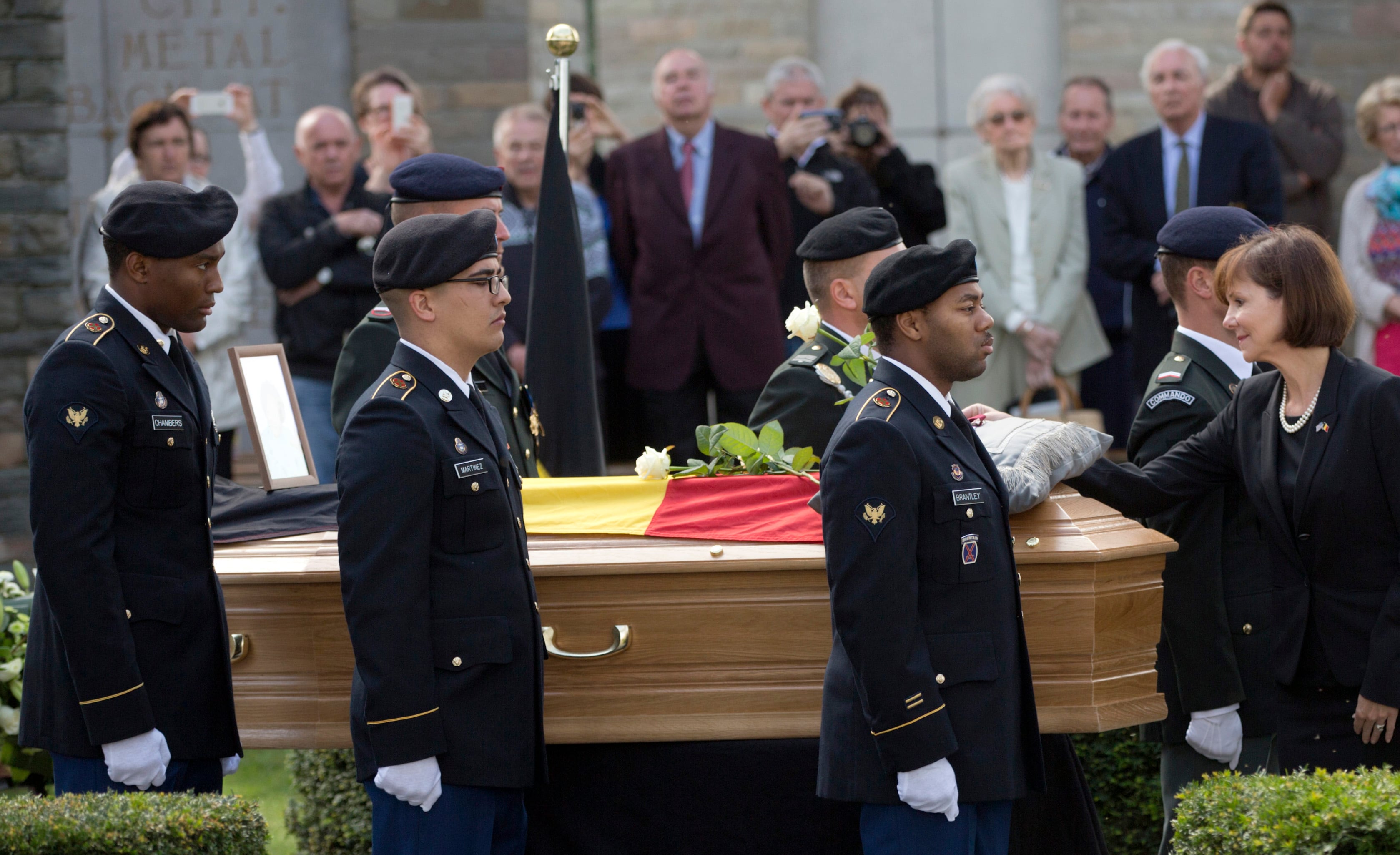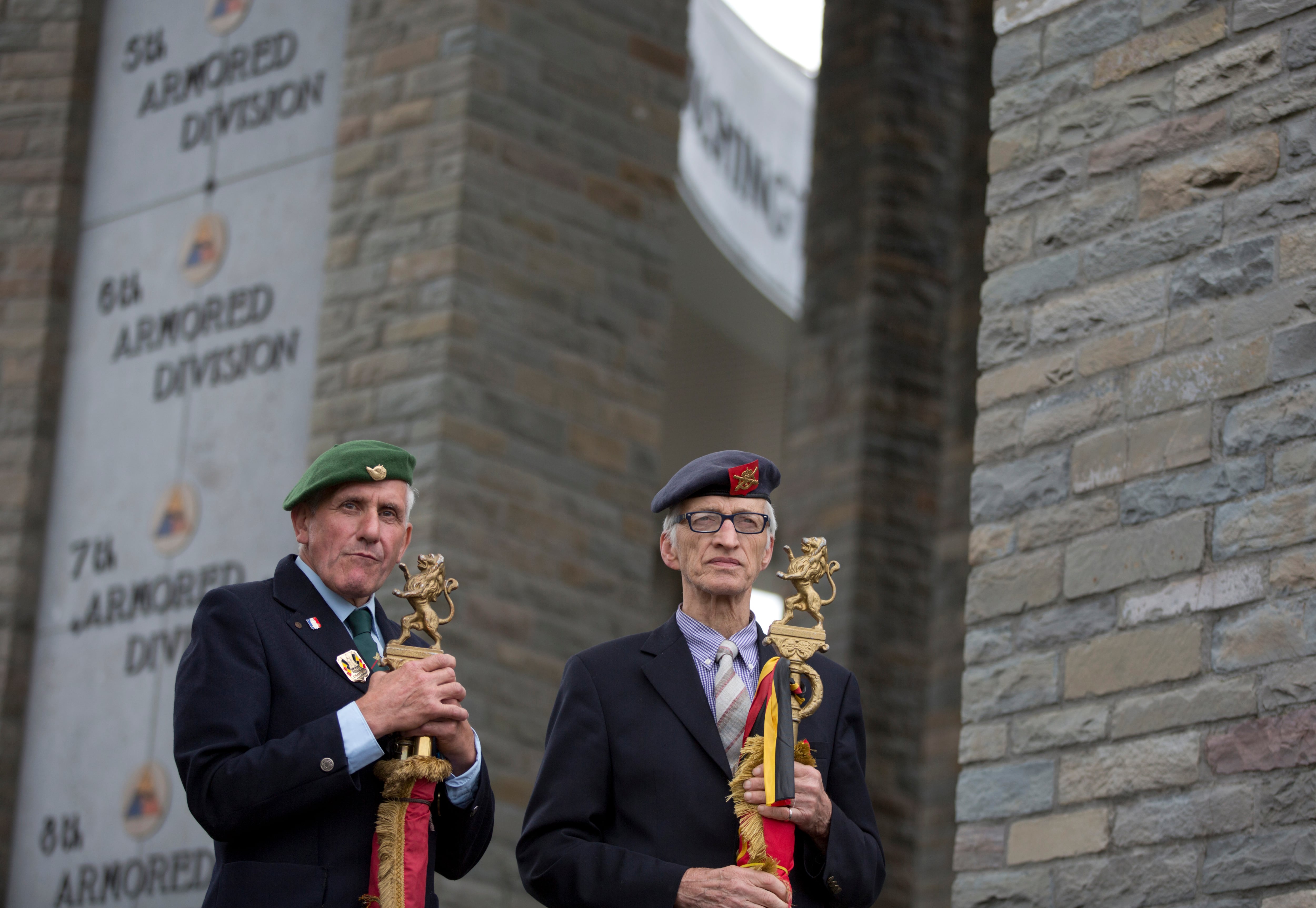BASTOGNE, Belgium — A Congo-born nurse was laid to rest in a quiet corner of Belgium on Saturday, surrounded by emissaries from the King and the United States, politicians and a military honor guard.
Augusta Chiwy – Belgium's "forgotten angel" – was buried at Bastogne, the scene of one of the most ferocious battles of World War II where at great personal risk she helped save countless American lives.
As Europe celebrates the selfless act of civilians who thwarted an attack on a high-speed train a week ago, Chiwy, who died on Aug. 23 aged 94, was a unique kind of hero.
Defying challenges of gender and race, she displayed a particular kind of bravery that has won her the gratitude of one of the U.S. military's most storied fighting outfits, the 101st Airborne.
Her actions are recounted in books, a documentary, and the television series "Band of Brothers."

U.S. Ambassador to Belgium Denise Bauer, right, lays a white rose on the coffin of Belgian nurse Augusta Chiwy during a memorial service at the Mardasson Memorial in Bastogne, Belgium on Aug. 29, 2015.
Photo Credit: Virginia Mayo/AP
"Her heroism was just incredible," U.S. Ambassador Denise Campbell Bauer told The Associated Press, after the ceremony at the Mardasson military memorial on the outskirts of Bastogne. "She reminds us all that ordinary people, that appear to be just ordinary, can do truly extraordinary things."
Bastonge, southern Belgium was the backdrop for the Battle of the Bulge during the final stages of World War II, which ended almost exactly 70 years ago.
In desperation, Adolf Hitler ordered a massive attack on allied forces in the Ardennes. About 80,000 American soldiers were killed, captured or wounded in a matter of weeks.
But this diminutive Congo-born nurse left the shelter of her uncle's cellar on Dec. 21, 1944 to come to the aid of the army doctor in Bastogne, Jack Prior.
Most people struggled with the decision of whether to keep the American flag over their door or put the Nazi Swastika back up, Prior wrote years later, let alone risk taking sides.
Medical supplies were scarce but Chiwy, working on despite lack of food and rest, "was always in the thick of the splinting, dressing and hemorrhage control," Prior said.

Belgian veterans Rafael Honroten, left, and Emile Rosiere hold their standards as they attend a memorial service for Belgian nurse Augusta Chiwy at the Mardasson Memorial in Bastogne, Belgium on Aug. 29, 2015.
Photo Credit: Virginia Mayo/AP
At one point, a shell blew her through a kitchen wall, killing several injured troops and the only other nurse, Renee Lemaire. But Chiwy was back at work the next day.
Martin King, a military historian who drew attention to her bravery through a book and documentary titled "The Forgotten Angel of Bastogne," noted that during the war black nurses could not treat white servicemen, and that some men refused her aid.
"The doctor told them: 'She takes care of you, or you die.' That is a great leveler," said King.
"She was an immigrant, she came from Congo, but she became a nurse, she saved lives," he told the AP, reflecting on the migrant challenge that Europe struggles with today. "She was a wonderful example of care, and compassion and love for her fellow man."




